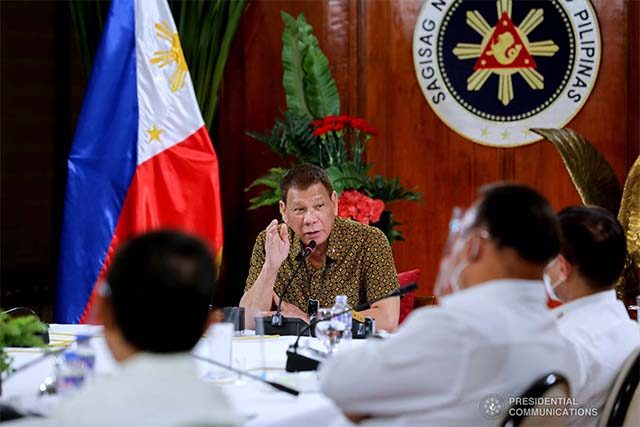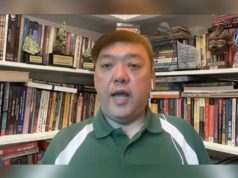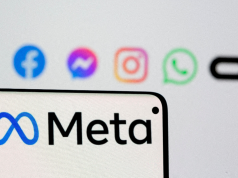
President Rodrigo Duterte and his administration have been dependent on Facebook since 2016, his critics pointed out following his threat to stop the media giant’s operations in the country.
In a late-night televised address on Monday, September 28, Duterte ranted against Facebook for its recent purge of suspicious accounts and pages linked to state forces and China.
He argued that it has no purpose to operate in the country if the national government could not use it for its own “advocacy.”
“Facebook, listen to me. We allow you to operate here hoping that you could help us also. Now, if government cannot espouse or advocate something which is for the good of the people, then what is your purpose here in my country?” Duterte said.
“Tapos iyong left, ini-encourage kayo, then you believe in the left and to the point of almost make a sweeping move to iyong sa health — website ng health, military, we are fighting a war,” he added.
More than 100 accounts and pages were purged out of its platform last week over engaging in “coordinated inauthentic behavior” or being deceptive of their true identities.
READ: Facebook purges accounts rallying Sara Duterte’s presidential bid, red-tagging of gov’t critics
Facebook found the accounts in two large networks from China and the Philippines that coordinated with one other in using fake accounts.
In the same speech, Duterte claimed that the government does not advocate mass destruction to the Filipino people as he continued to question Facebook’s operations.
“What would be the point of allowing you to continue if you cannot help us? We are not advocating mass destruction, we are not advocating mass massacre. It’s a fight of ideas. And apparently from the drift of your statement or your position is that it cannot be used as a platform for any… It is so convoluted. I cannot understand it,” he said.
The chief executive then warned Facebook to have a “talk” with him and asserted that the social media network could not prevent him from “espousing” his administration’s policies and objectives.
“You cannot lay down a policy for my government. I allow you to operate here. You cannot bar or prevent me from espousing the objectives of government,” he said.
READ: Duterte calls out Facebook after accounts taken down
A propaganda tool?
Facebook has been a huge medium for Duterte’s political propaganda for years, particularly during his campaign for presidency in 2015.
Several critics pointed this out on Twitter.
“Facebook was his main vector for disinformation as early as 2015,using mainly a massive overseas Filipino community which used Facebook as its main – often only – network with people back home,” wrote Carlos Conde, human rights advocate and researcher.
Philip Jamilla, a member of Karapatan, also viewed Duterte’s remarks of “life after Facebook” as a “dangerous and insidious threat.”
Jokes aside, Rodrigo Duterte musing "life after Facebook" in an address definitely sounds like a dangerous and insidious threat—if not already a dangerous and insidious threat in itself especially after the recent takedown of state-linked fake accounts. What would this regime do?
— Philip Jamilla (@pmjamilla) September 28, 2020
Blogger Tonyo Cruz perceived the president’s threats as an “indirect admission” of him being behind the rampant disinformation on Facebook.
Duterte is angry over Facebook's takedown of Pages backed by China, AFP and PNP.
It is an indirect admission that the regime is behind coordinated inauthentic behavior on Facebook.
— Tonyo Cruz (@tonyocruz) September 28, 2020
Former People’s Television Network reporter Jules Guiang, on the other hand, cited presidential spokesperson Harry Roque‘s statement when he questioned why only pro-government pages were removed by Facebook as another supposed admission.
“Why take down pro-government pages only? Why have fact-checkers (i.e. Rappler, VERA files) that are anti-government?” Roque was quoted as saying during the Palace press briefing on Tuesday.
Sabi ni Spox Harry, bakit puro pro-gov’t pages lang ang inalis? You mean yung mga Sara for 2022 at red-tagging pages ay pro-gov’t ‘no? Bale it’s an admission already? So ito ba yung ‘advocacy’ ng pamahalaan? To drumbeat a possible candidate and to red-tag your people?
— jules guiang
(@JULESguiang) September 29, 2020
Some Filipinos, meanwhile, expressed support for the removal of Facebook in the country.
Tanggalin na kasi ang Facebook sa Pilipinas! Nang tuluyan nang matuyuan ang balon ng tubig na naglalason sa utak ng mga kababayan nating OFW at taga-Mindanao! Sana, ang Youtube ang sumunod sa paglilinis kasi puro basurang kasinungalingan na bayad ng mga Marcos ang nandiyan.
— Bart Guingona (@guingonabart) September 29, 2020
A separate report from The Atlantic Council’s Digital Forensic Lab or DFRLab cited the pages “Talahib” with over 59,523 followers and “Hands off Our Children” with over 20,000 followers as among those taken down.
The report stated that both pages shared content that accuse government critics as communist rebels and express support to the controversial Anti-Terrorism Act of 2020.
How the gov’t received the massive takedown
In a previous radio interview, Roque also perceived Facebook’s takedown of pages as unfair given that most of the assets affected were linked to administration supporters and state forces.
Roque noted that they will find another medium to circulate their information if they could no longer use the network for it.
“Pupunta na lang sa ibang medium ang mga sumusuporta sa gobyerno at yan naman po ang kuwento ng supporters ni President Duterte na mula’t mula po ay naghahanap ng alternative venues para ipakalat ang impormasyon,” he said.
Col. Ramon Zagala, Army spokesperson, also defended the military personnel tagged in operating the suspicious pages.
The DFRLab identified Philippine Army Capt. Alexandre Cabales as among the operators of these fake accounts.
“The trust and confidence on soldiers is huge so it is important that we act accordingly on social media, especially the official pages and also the personal pages because you’re in uniform. You reflect the institution,” Zagala said.
READ: Philippine police, military disown fake Facebook accounts









